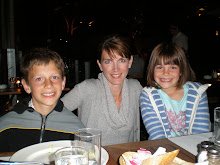

“You flew into Vienna, not Frankfurt”, my dad said to me over the phone. We were discussing how Prague used to be, when my dad lived there, and how complicated it was for me to travel there. I mentioned that I had flown into Frankfurt. I was a kid then, probably thirteen or fourteen. My dad had picked me up at the airport and we spent the night in the city – which city, I’m not sure now – and the next day we drove on to Prague. “It makes more sense that you’d have flown into Vienna. It’s much closer to Prague,” my dad insisted. Maybe, but I’m still convinced I’ve been to Germany.
When most of us think of Germany we think of WW II, the Nazis, the Berlin Wall, the autobahn, Volkswagen. For me, I think of my heritage.
When I scour through family photo albums, and I get to the photograph of my German great-grandfather, his image makes me pause. He’s sitting perfectly straight, his stern features staring into the camera. I never knew him. My dad told me that when he was little he was afraid of his grandfather who yelled at him for climbing trees and making too much noise. On the other hand, my grandmother described her father as generous. During the depression he was a funeral director and he accepted eggs, butter and other farm products as payments from farmers who couldn’t pay their funeral bills. I’d describe my great grandfather as a typical German: stern, hard working, generous and loyal.
To decide what to eat for my German meal I contacted my German friend, Sabine.
Sabine told me that the cuisine in Germany differs from region to region, and season. Sabine grew up in Northern Germany where fried white fish is very popular. It’s served with a green salad and boiled potatoes, with the skin on. Traditionally they are peeled at the table.
As it gets closer to spring, a common dish is steamed white asparagus. This is often served with cold cut ham from the deli and boiled potatoes, with garlic butter.
A very traditional German meal is fried or grilled Bratwurst served with sauerkraut and fried breakfast potatoes.
As you go further south, the meals become hardy. An example would be dear meat, red cabbage and potatoes.
For our German meal we had ham, boiled potatoes (with the skin on) and white asparagus. I couldn’t find fresh white asparagus but I did find it in a jar. It was surprisingly good. Having bought the ham, which we ate cold, had jarred asparagus and boiled potatoes, without even having to peel them, it was one of the easiest meals I’ve made for this project. It was delicious too.
I went to a European grocery store to get the meat and the asparagus. I stood in a long line at the deli counter. There seemed to be quite a few Germans there. I could almost convince myself I was in Germany - again.


No comments:
Post a Comment